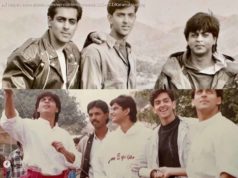Two of the year’s best films are about horses. Why are we so drawn to films about the majestic animals?
Superhero movies are bigger and more popular than ever, and multiplexes these days are like temples to their powers.
Yet two of the year’s best movies are as far away from the technical razzle-dazzle of “Avengers: Infinity Wars” and the irreverent snark of “Deadpool 2” as possible. Their plots are slow and deliberately paced. And they star horses.
Yes, in the far reaches of the cineplex hallway, a long walk from the giant screens playing the latest blockbusters, horse movies are having quite a year.
Last month’s “Lean on Pete” told the devastating story of a teenager (Charlie Plummer, a revelation) who befriends a downtrodden racehorse and travels with him from Oregon to Wyoming. It’s a hard, crushing story about people scraping by on the back roads of life, showcasing an America that is often forgotten about, especially on screen.
And “The Rider,” which opens in local theaters this weekend, tells an equally heart-rending story of a rodeo cowboy trying to put his life together after suffering a horrible fall from a horse. It stars real-life rodeo rider Brady Jandreau and is based on his life, and is an elegant, quietly beautiful story of redemption.
These two exceptional equine stories are likely not the beginning of a larger horse trend; “Black Beauty” isn’t going to replace “Black Panther” anytime soon. But it is telling that in our fast-paced technological world, where “Laurel or Yanni” arguments pass as conversation and 9-year-olds are yelling about driving Ferraris on Instagram, that two hushed, delicate stories about man’s relationship with horses can make such a strong connection.
(Not that either film has burned up the box office. “Lean on Pete” has eeked out just $1M and “The Rider” has grossed only $850,000 so far. They’ve both done extremely well with critics, earning scores of 92 percent and 97 percent fresh, respectively, on Rotten Tomatoes.)
Hollywood has a long love affair with horse movies, from “Seabiscuit” to “Secretariat,” from “War Horse” to “The Horse Whisperer.” In part, it’s because of man’s long relationship with horses. Once was a time when horses were our best means of transportation, and automobiles are still measured according to how many horses their power can match.
Horses are majestic creatures, powerful and wild. Running free, they represent freedom. We have assigned them human qualities as well, and their huge eyes are able to evoke soul and sadness more deeply than human eyes. Aside from that, they film beautifully, especially against a wide open backdrop.
Horses don’t make for great comedies — no disrespect to Bobcat Goldthwait’s 1988 racetrack comedy “Hot to Trot,” or to « Mr. Ed » — and there aren’t any horror-themed horse movies that come to mind. But when it comes to drama, horses are home runs; rare is the horse movie that doesn’t require several hankies before it’s all said and done.
And that’s the case with “Lean on Pete” and “The Rider.” Another reason both strike a nerve is they’re throwback stories; they take place today but aren’t encumbered with technology or text messages or any facets of modern society. They could take place in 1985 or 1955 and they’d tell the same story, stemming from the relationship between horses and us.
Horses also took center stage in January’s « 12 Strong, » about a group of American soldiers who rode into Afghanistan on horseback in the wake of 9/11. And a horse running loose in a hospital is used as a metaphor for our current presidential administration in John Mulaney’s hilarious Netflix stand-up special « Kid Gorgeous. » Marquee races such as the Kentucky Derby and this weekend’s Preakness Stakes bolster our fascination with horses while coloring them with our darker tendencies toward greed.
Horses reflect a lot about ourselves, which is why we continue to be drawn to them and stories about them. Movies will continue to grow in size and stature, but sometimes all the technical marvel in the world can’t compete with a good old-fashioned horse tale.
agraham@detroitnews.com
(313) 222-2284
@grahamorama






